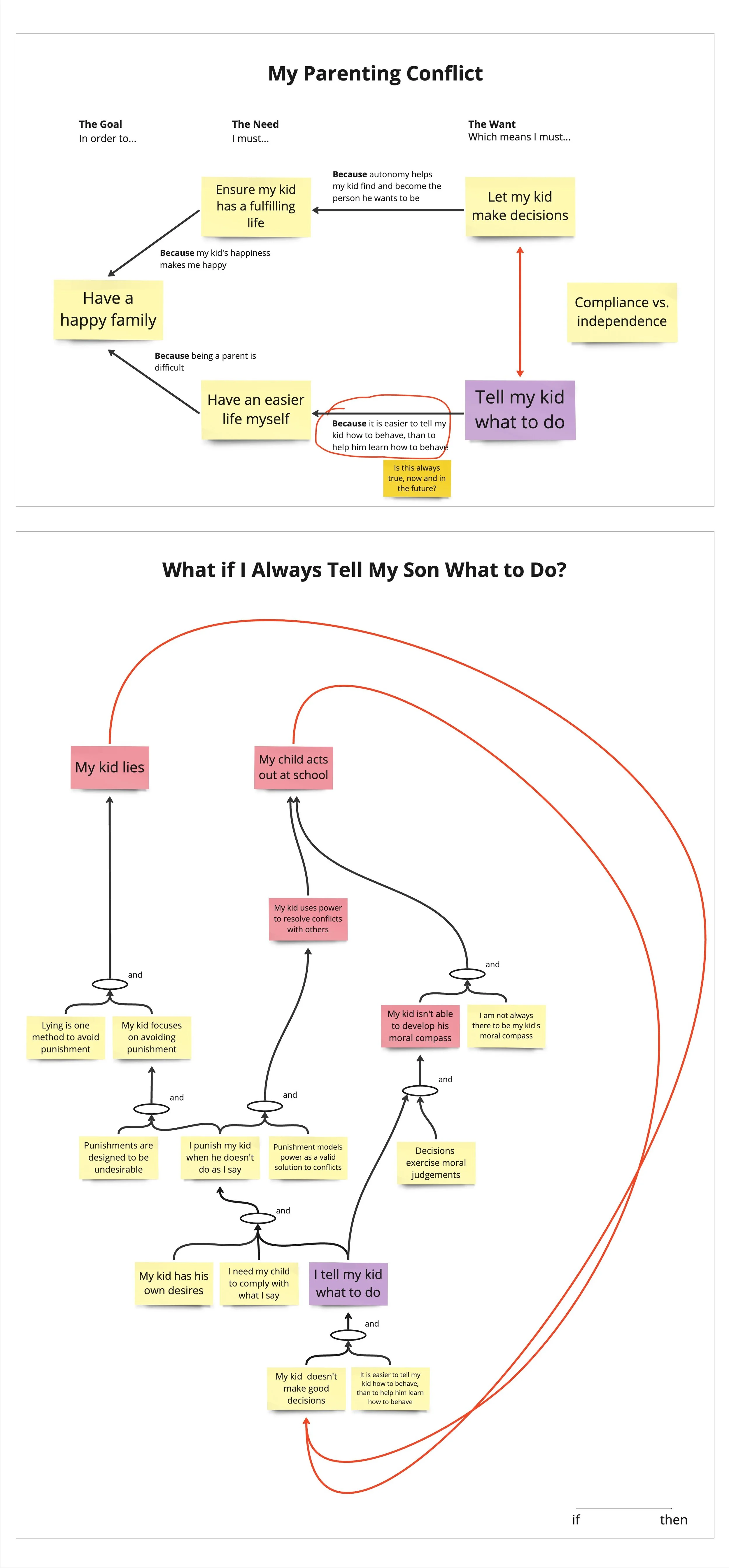Goals Guide Growth
Tech debt taught me about parenting.
Mike looked at me with a pained face. “I can make the software change in one of two ways: properly or fast. If I do it properly, future changes will be easier. If I do it fast, future changes will be harder. Which one do you want?”
“So, we can either optimise for today, or for the future?”, I parroted.
“Yep”
“Let’s optimise for the future. We could both do with an easier life”, I suggested.
I looked down at my lap where my son slept peacefully. Working from home had its advantages.
As a father, I’m confronted with a similar conflict.
In order to have a happy family, I must ensure my son has a fulfilling life. This means letting him make decisions - because making decisions helps him find and become the person that he wants to be.
However, in order to have a happy family, I must also have an easier life - because being a parent is hard. In order to have an easier life, I want to tell my son what to do - because it’s easier to tell him what to do, than to help him learn how to behave.
The conflict: do I tell my son what to do, or do I let him make his own decisions?
Let’s see what may happen if I always tell my son what to do:
If my son doesn’t make good decisions, and it’s easier to tell him what to do, then I’ll tell him what to do and use punishment to ensure he accepts my decision.
However, if I do punish my son, and punishment models power as a valid solution to conflicts, then my son may use power to resolve conflicts at school.
Also, if I punish my son, and punishments are designed to be undesirable, he’ll try to avoid punishment - and lying is an effective method of doing so. I encourage my son to lie.
Finally, if I tell my son what to do, and decisions are one way of exercising moral judgements, then I rob my son of the opportunity to develop his moral compass. This means he’s more likely to make immoral decisions at school.
So, whilst making some decisions on behalf of my son is necessary - particularly those relating to safety - not trusting my son to make decisions now impairs his ability to make good decisions in the future.
My invalid assumption is that it’s *always* easier to make decisions for my son. Whilst perhaps more true in the short-term, it becomes increasingly untrue in the long-term.
The takeaway? Am I optimising for fast delivery for just today, or for the whole future? Am I optimising for my son to be compliant, or independent? A clear goal helps us make better decisions as managers, and as parents.
NB: This article was inspired by Noah Cantor, and Kohn’s “Unconditional Parenting”.
